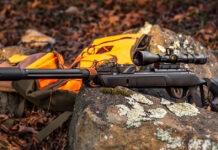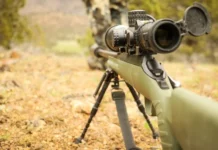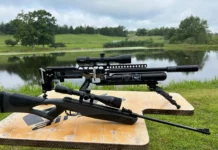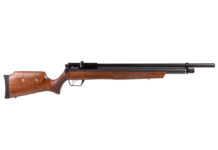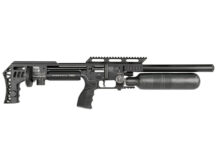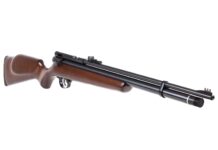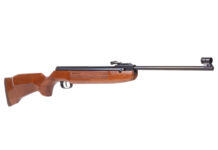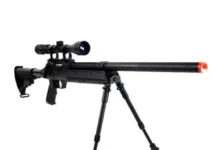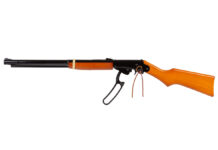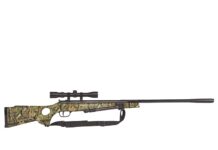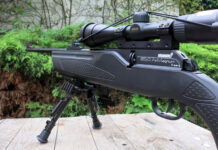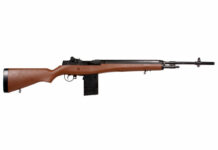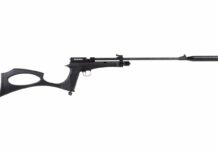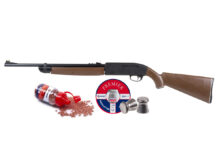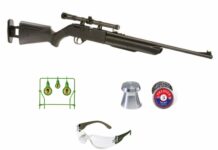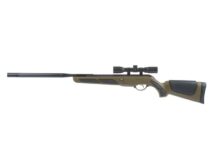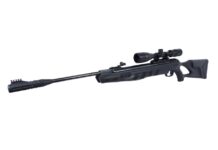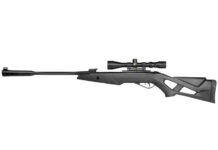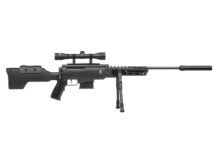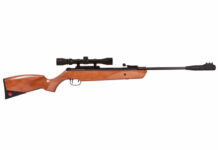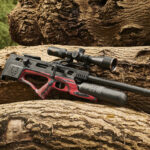Crappie fishing is a popular pastime for many anglers since the fish are very easy to catch and they put up a good fight when caught, making the process very fun.
When it comes to selecting the pound test for the fishing line when catching crappie, though, there appears to be a bit of a confusion.
This is why I decided to write this post, which answers the question “What pound test fishing line is best for crappie?” and also provides a few recommendations that might make your life easier.
Table of Contents
What Pound Test Line Should I Use for Crappie?
There appears to be a great deal of uncertainty over which pound test line is best for crappie fishing.
Because of their diminutive size, crappies don’t put up much of a fight when caught, making them a pleasure to land.
As a bonus, they are quite small, making them a great option for fishers who would rather avoid catching monster fish and enjoy a good time catching smaller fish.
Thus, when angling for crappie, I advise using a line with a 4 pound test. The thin and light nature of this line makes it easier to cast and less likely to startle the fish.
You could use a 6-pound-test line, but if the crappie can see it, they’ll probably notice the line and swim on.
Types of Fishing Lines for Crappie Fishing
Here are some of the most frequent fishing lines followed by an analysis on whether they are good or bad for catching crappie.
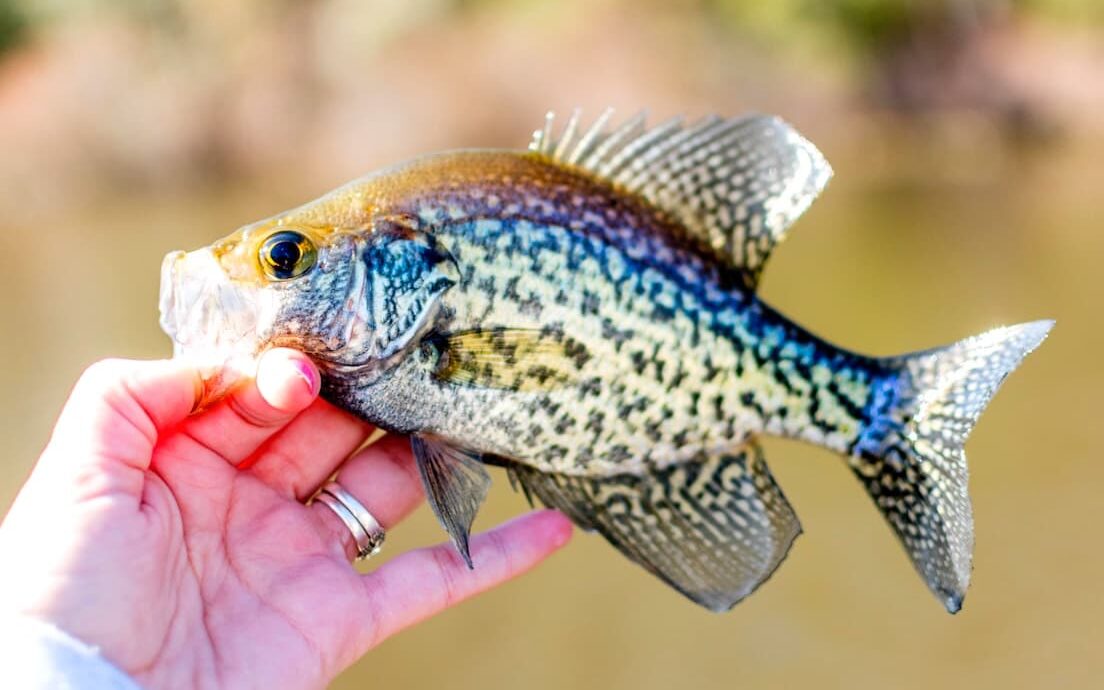
Monofilament
All of the material for a monofilament fishing line comes from a single filament. Nylon is the material of choice, however polyethylene and fluorocarbon are occasionally used to compose this fishing line as well.
The durability and tensile strength of monofilament fishing lines make them versatile and useful for fishing of all kinds. This is why they are among the most widely used fishing lines.
Why Is Monofilament Good for Crappie Fishing?
Crappie are easily spooked, so it’s important to use a line that won’t drive them away.
Monofilament’s low visibility encourages Crappie to bite, and the line’s strength improves your chances of landing the fish once they do.
This line’s already impressive strength and durability make it ideal for catching crappie, but its flexibility makes it even much more effective.
Why Aren’t Monofilament Lines Good for Crappie Fishing?
Although monofilament fishing lines are widely used due to their inexpensive price and adaptability, they have a reputation for breaking easily.
Due to their construction from a single strand of material, monofilament lines break easily when subjected to tension.
This is especially true of 4-pound lines, which are usually utilized to catch crappie, see what I mean?
Choosing a good quality monofilament fishing line should solve this issue, though.
Fluorocarbon
Fishing line manufactured from fluorocarbon resin is known as fluorocarbon fishing line. Fishing enthusiasts are increasingly adopting this material because of its many advantages over more conventional options like nylon.
Fluorocarbon lines are not only practically invisible underwater, but also substantially more abrasion resistant than other line, making them less likely to fracture under the force of crappie battling.
Why Is Fluorocarbon Good for Crappie Fishing?
Invisible in water is one of fluorocarbon’s most useful properties. Because the line won’t spook the crappie as easily, it’s great for fishing.
In addition, unlike certain other fishing lines, fluorocarbon can withstand the sun’s ultraviolet rays for extended periods of time without deteriorating.
Finally, fluorocarbon absorbs less water, making it simpler to handle and cast, which is critical for improving the fishing experience.
Why Aren’t Fluorocarbon Lines Good for Crappie Fishing?
I can’t think of any disadvantages to using fluorocarbon line to catch crappie.
Braid Line
Braided fishing line is one variety that is made up of multiple strands of material that are woven together (nylon, polyethylene, etc.).
Braided fishing lines are widely used because they are extremely durable and abrasion-resistant, and they flex very little. This allows for greater sensitivity and feel when casting.
Why Is Braid Line Good for Crappie Fishing?
I would use a braid line to capture crappie for a number of reasons.
Braided line can take on larger fish and heavier weights because of its superior strength.
Second, bites from even the smallest fish may be felt when using braided line because of its extreme sensitivity and lack of elasticity compared to other lines. This will help you catch the most crappie fish possible.
Third, this line is one of the best if you care about underwater visibility, as its smaller diameter belies its greater strength compared to other fishing lines.
Why Aren’t Braid Line Good for Crappie Fishing?
Because to the small diameter of the line, it is readily frayed or broken when exposed to the sharp teeth of a fish.
Second, braid line has very little elasticity, which can make setting the hook when a fish bites difficult.
Frequently Asked Questions
Here are some of the most frequent questions that always pop out when asking about fishing lines, pound test and catching crappie.
Why do people use yellow line for crappie?
Aside from the 4 to 6 pound test, visibility is an important thing to consider when selecting a crappie fishing line.
A yellow fishing line is a wonderful choice for fisherman that keep a close check on their line. Yellow is easily visible from above, making it simple to notice even the smallest bite.
The yellow color, however, is easily visible to fish swimming underneath. Crappie are more easily spooked by yellow lines than by lines of any other color.
Can crappie see your line?
Yes, Crappie have good eyesight and are very sensitive to movement. This means that if your line is in their line of sight, they will almost certainly notice it.
Crappie are also extremely sensitive to light and dark contrast. As a result, if your line is darker than the water surrounding it, the fish will most likely notice it.



